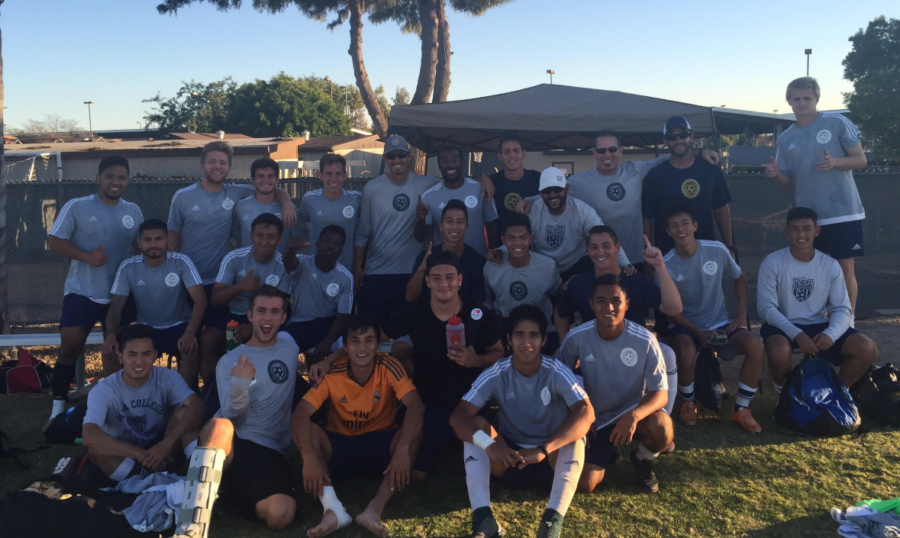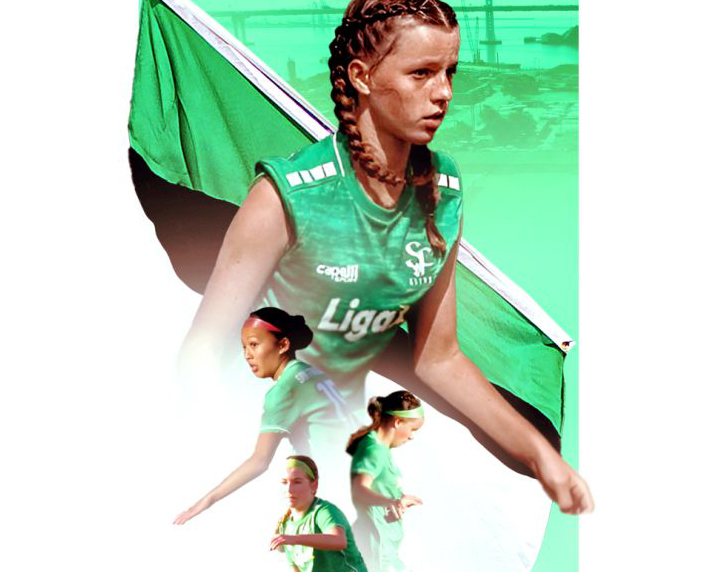Duarte Andrade is perhaps one of the most active and hard-working people in the San Diego soccer scene. With a role in numerous organizations and teams, the San Diego native is undoubtedly an excellent source for insight and advice.
In an exclusive interview with Soccer Nation, Duarte discussed his goals for the year, gave his thoughts on youth development and also told us a bit about his several functions and jobs.
SN: Tell us about yourself and your own personal history with the beautiful game.
DA: I am a local from San Diego. I played club for Albion before they were big and Villa, which is now Notts Forest. I played high school for Point Loma and college right down the street at Point Loma Nazarene University.
I’ve only been a full-time coach since 2013, where I was brought in by my good friend Darren Parker to help assist a few of his older teams at the old Manchester Soccer Club in Carmel Valley. I got my coaches license, and in 2012 as an assistant, our U19 made a run to the quarterfinals of National Cup and won the U19 USY Futsal National Championship.
The following year, I was given the task of taking the Manchester Soccer Club U19 team to National Cup as my first coaching assignment after their coach had left during the winter period to take a job at another club. That team made a run to the National Cup quarterfinals as well — and as my first coaching assignment — I was hooked.
In January of 2014 when Manchester Soccer Club merged with the Sharks, bringing over coaches Warren Barton, Ryan Penton and myself. I was given two teams and have been part of the club ever since.
SN: Your Twitter bio states that you are currently involved with five different soccer organizations. How difficult is it to balance all of that work?
DA: It is a juggling act at times. So it takes some good hands, my goalkeeper joke, as well as careful and meticulous planning and organization.
It helps that Mesa College season is in the fall, Point Loma High School season is in the winter, and NC Battalion is in the spring. So the fact that those three seasons overlap make it much more manageable as well. I handle my three teams at Sharks and co-direct the Goalkeeper Academy with fellow goalkeeper coach Molly Hollaran and Sharks Futsal with fellow coach Ryan Penton basically year-round.

The fact I have an unwavering passion for the game, as well as the love of developing players, makes it very rewarding. I am busy every day but when you do what you genuinely love to do, it makes things very easy.
I also work for the San Diego Sockers where I’m in my third year as Team Statistician on matchdays, as well as the manager of the Sockers Indoor Center, which is the team’s training facility. We run a few leagues as well as facility rentals which I help cover in my “spare” time.
SN: Thoughts on the recent partnership forged between NC Battalion and SD Surf?
DA: Tough call on this question.
I haven’t spoken to either of the Jasons yet and am still waiting to speak to head coach Sergio Palafox about plans for the upcoming season. He has reached out to me and we just need to connect. I still have a great rapport with goalkeepers James Stroud and Dean Meltz, and have had a few workouts with the boys over the winter break.
Stroud is a beast who constantly pushes you as a coach to bring your best. I would love continuing to coach goalkeepers at the highest level.
SN: Thoughts on MLS considering San Diego as a potential site? What needs to be done to bring the league over to the area?
DA: It would be fantastic to see an MLS team come to San Diego. Obviously, we will know much more by January 15th, when the Chargers have to make a decision on whether or not they are moving to LA or not. If they leave, I believe we will be on the next round of expansion teams slated by the MLS. If the Bolts stay, USL will more than likely come before MLS does.
SN: Looking at the youth level, what improvements need to be made in order to help development?
DA: I am a huge proponent of a lot of free play, especially at the younger ages. Also, getting touches on a ball at an early age as often as possible is huge as well. Kids need to play outside of their two training sessions with their teams every week.
All they need is a ball and some friends and to play in real life, instead of on FIFA all day.
Futsal is also massive in kids development. Being able to be confident in tight spaces translates over to the outdoor game, so more kids being exposed to and playing futsal is imperative.
As an example of what the U.S. can do to develop quality players, we have Christian Pulisic. Pulisic is the best young prospect I’ve seen come up for the U.S. in a long time. I’ve read a lot about how he developed as a young footballer. He was born in Hershey, PA and his Dad was a professional footballer who played in the old indoor/outdoor days of the late 70s and early 80s in the U.S.
His dad said that Christian would have a ball at his feet since he could walk, and was learning to manipulate the ball as early as then.
There is no doubt that the likes of Neymar, Suarez, Messi and for sure CR7 — who is from the same islands and village my parents are from: Funchal in the Madeira Islands — grew up playing with a free play environment in their early years. I think at times, things are too structured and when it come down to it. When a kid is five, six, seven years old, they just want to play.
SN: Goals for the new year? Anything that we should be keeping an eye on within any of your jobs?
DA: I am constantly setting goals and trying to reach them.
With Sharks, I’d love to continue developing young players on the boys’ side so that we can continue building ourselves as a club that does things the right way. We want to prepare these kids to be great players, but also great teammates and human beings as well.
Teaching kids accountability, commitment and to always work hard to improve themselves on the pitch, in the classroom and in life, is a goal I reach for every day as a Sharks coach. If you get that stuff right, results will come. With the Sharks as well, to also continue building our futsal program, which had a tremendous first year.
Especially at the younger ages. The transition in the confidence of a kid you see between the futsal court and the outdoor pitch is huge. Making these young players confident with the ball at their feet is massive in a young development. Exposing more young people to futsal is something I want to continue doing as well.
With the Point Loma High School team, another CIF and a run for state title would be tremendous as well. We are off to a good start this year, 6-1, and are playing some exceptional football right now. A lot of high school teams in the area are extremely direct with their play, which frustrates a lot of purists and club coaches including myself, but our team has a very possession-oriented style of play which is rare at that level.
We won CIF’s Division 2 last year for the first time in 33 years, which was an honor in my second year as a coach in the program because it’s my alma mater. We have been bumped up to Division 1 this season, so we want to continue to build the program in what is my third year this season.

With Mesa College, continuing our rebuilding of the program where we have made the state playoffs the last two seasons in a row. Prior to that, the program hadn’t make the playoffs for over a decade. Winning a conference title is something I believe we can compete for this coming fall as well. This fall will be my third season with the program.
SN: It appears as though goalkeeping is your specialty. What advice would you give to a youth player who wants to play in that position professionally?
DA: Dedication and a commitment to proper technique at an early age.
When it comes to the position of goalkeeper, it’s a mentality, and to play at the top level you need to have that committed mentality.
Stroud is a brilliant example. He wants to play at a higher level and continues to attend trials for USL clubs all of the time. He is extremely dedicated, takes care of himself off the pitch and is willing to put himself out there in any situation.
For the younger keepers, it is imperative to get diving and handling techniques down as early as possible so that as you continue to develop physically, your technique become second nature. You have to be mentally tough as well. Being able to mentally get past a mistake is something goalkeepers have to deal with not only in training, but especially in match situations as well.






